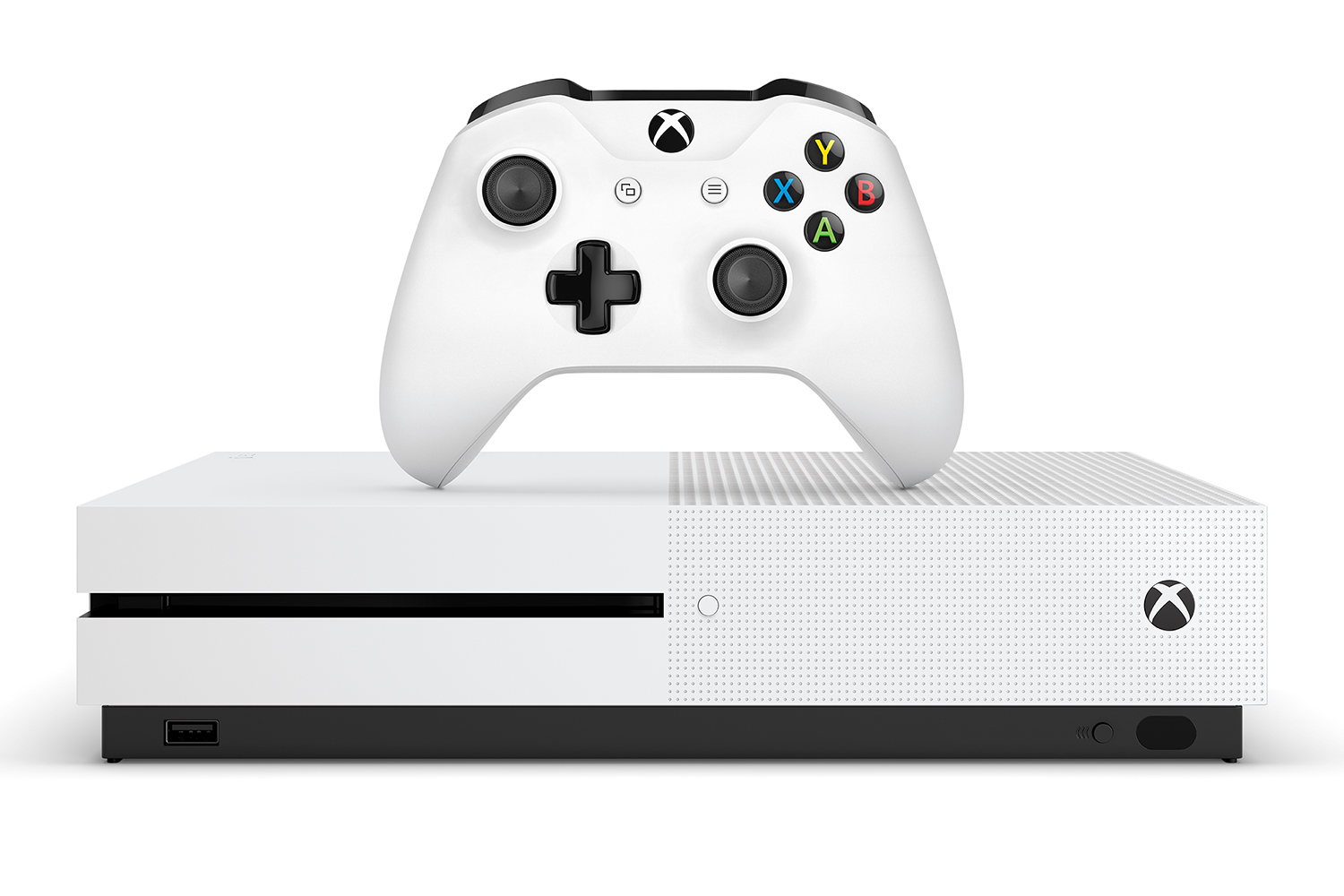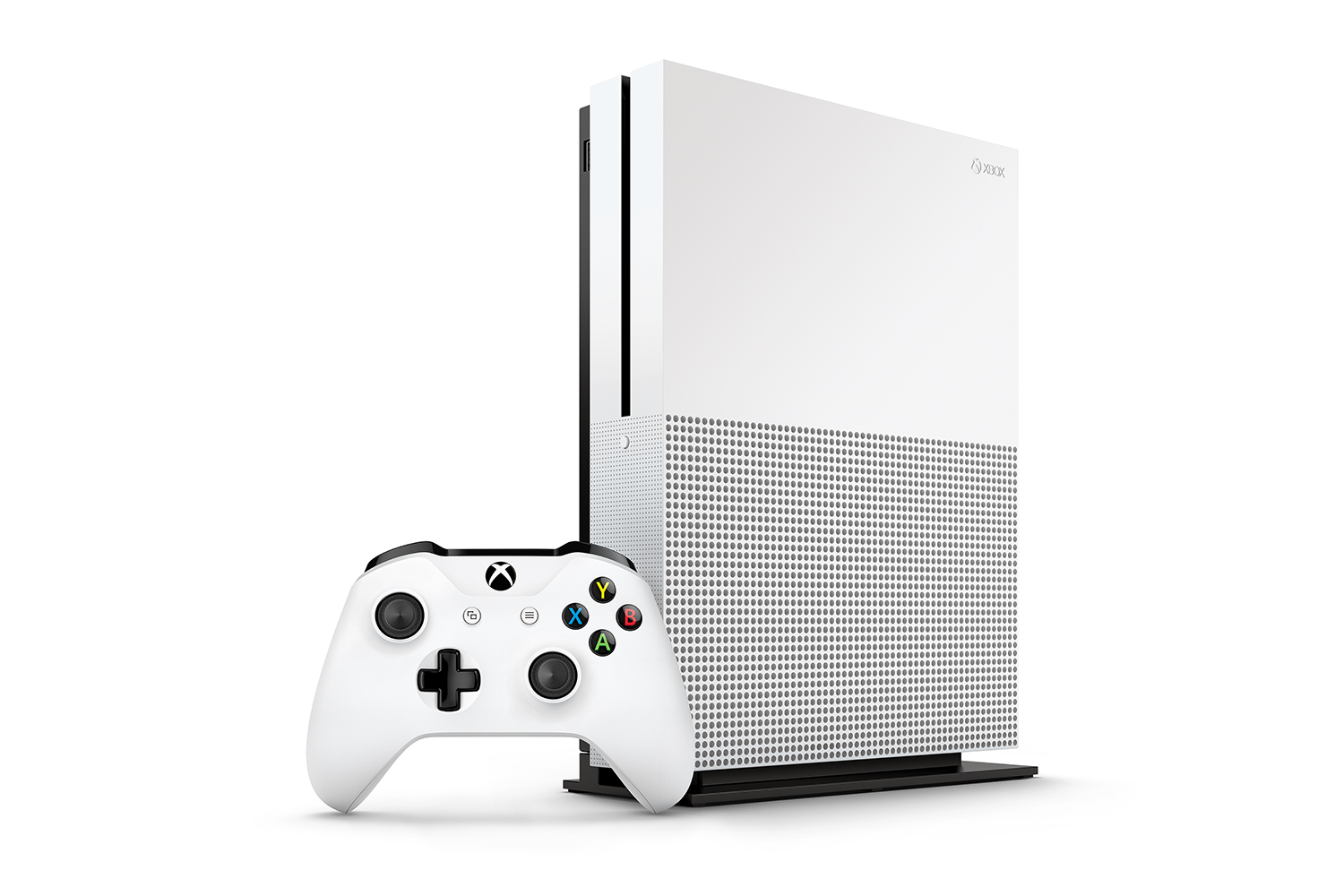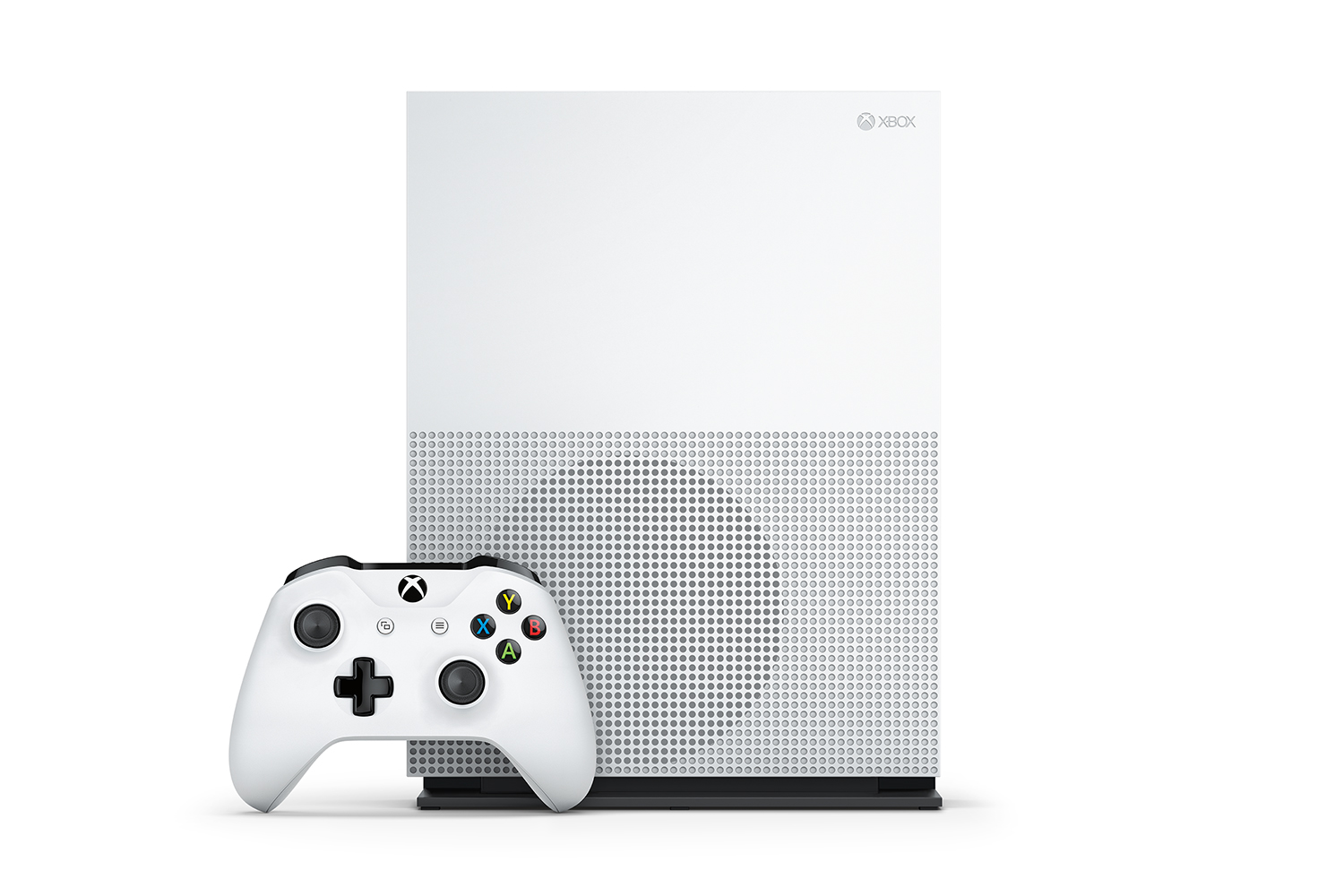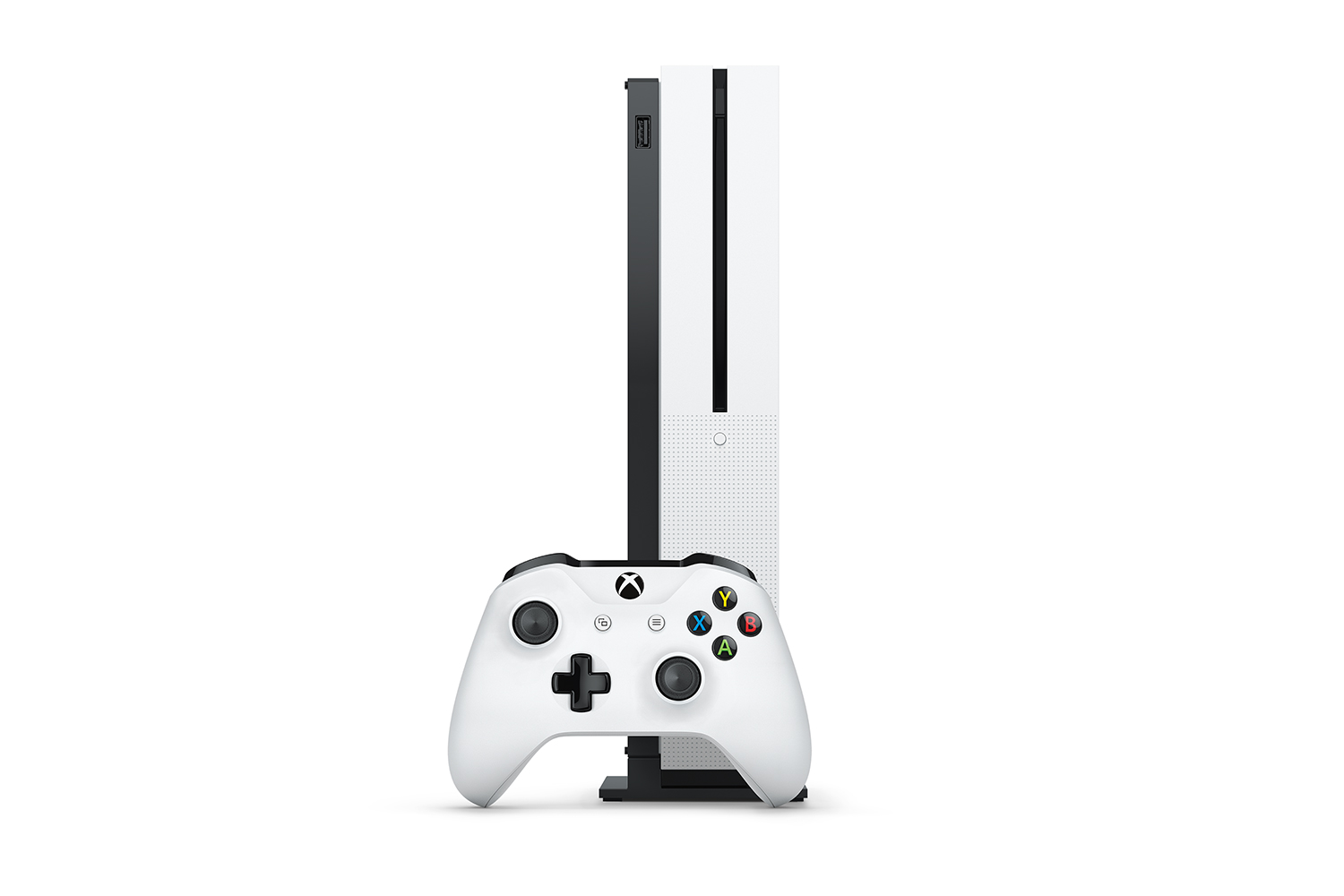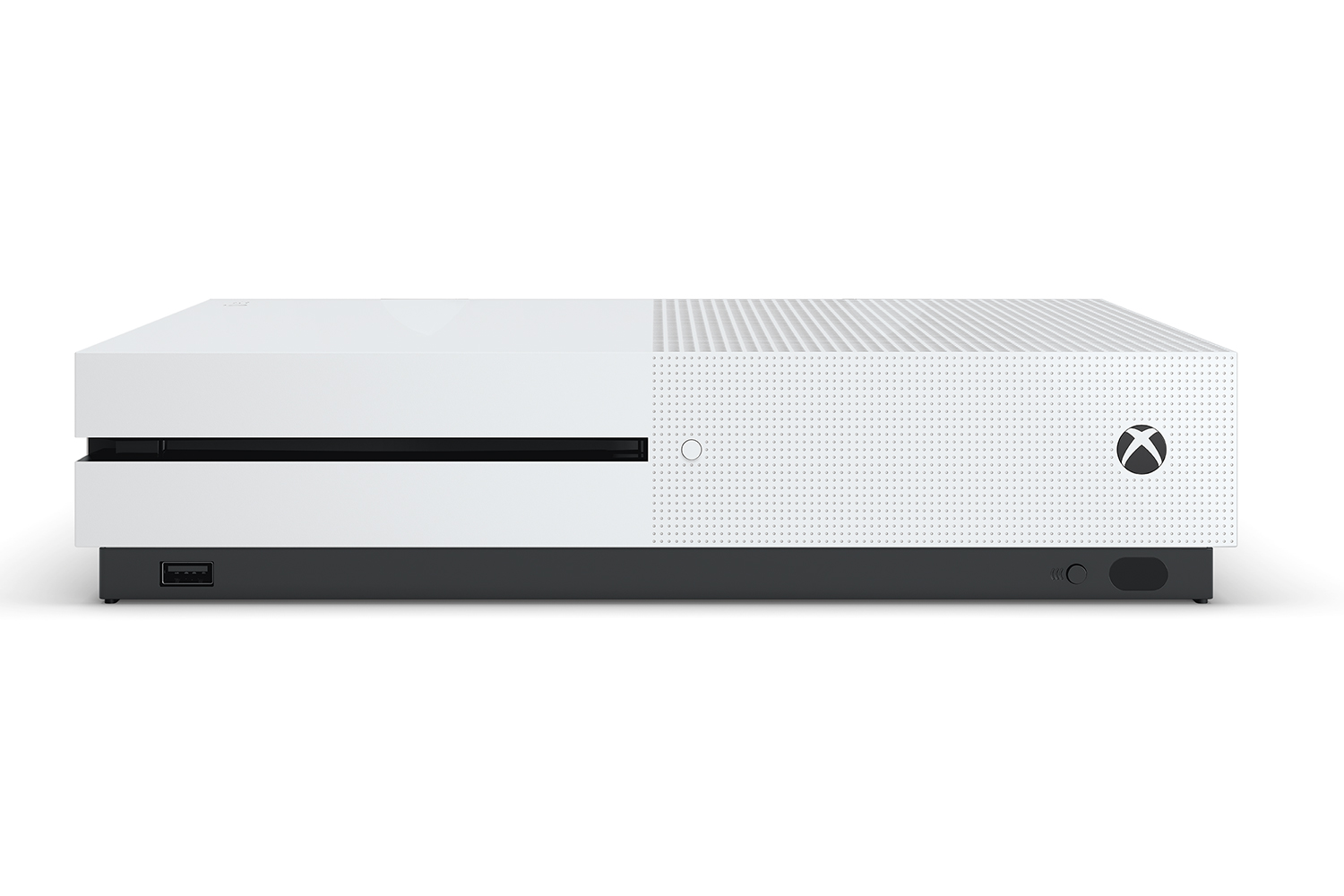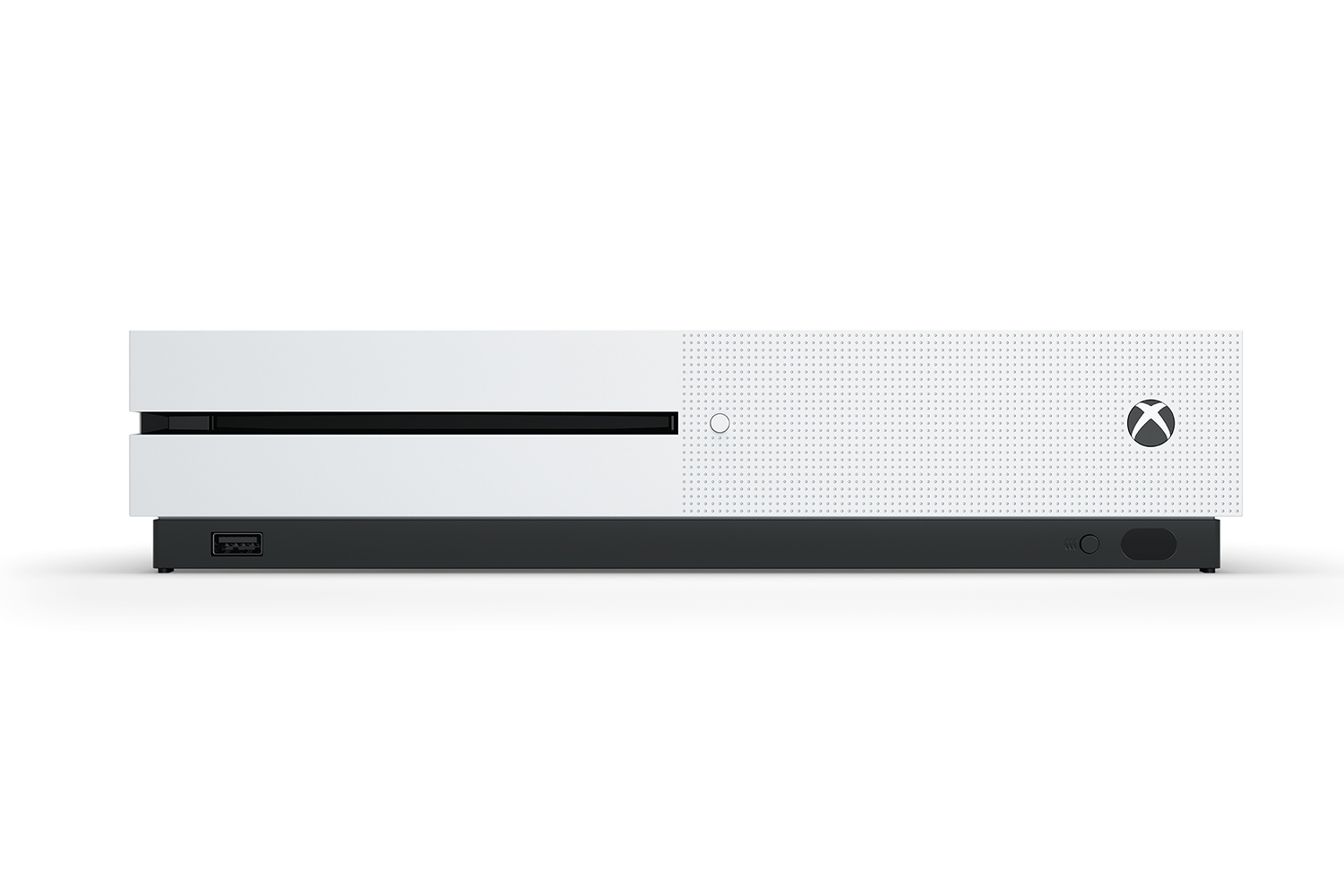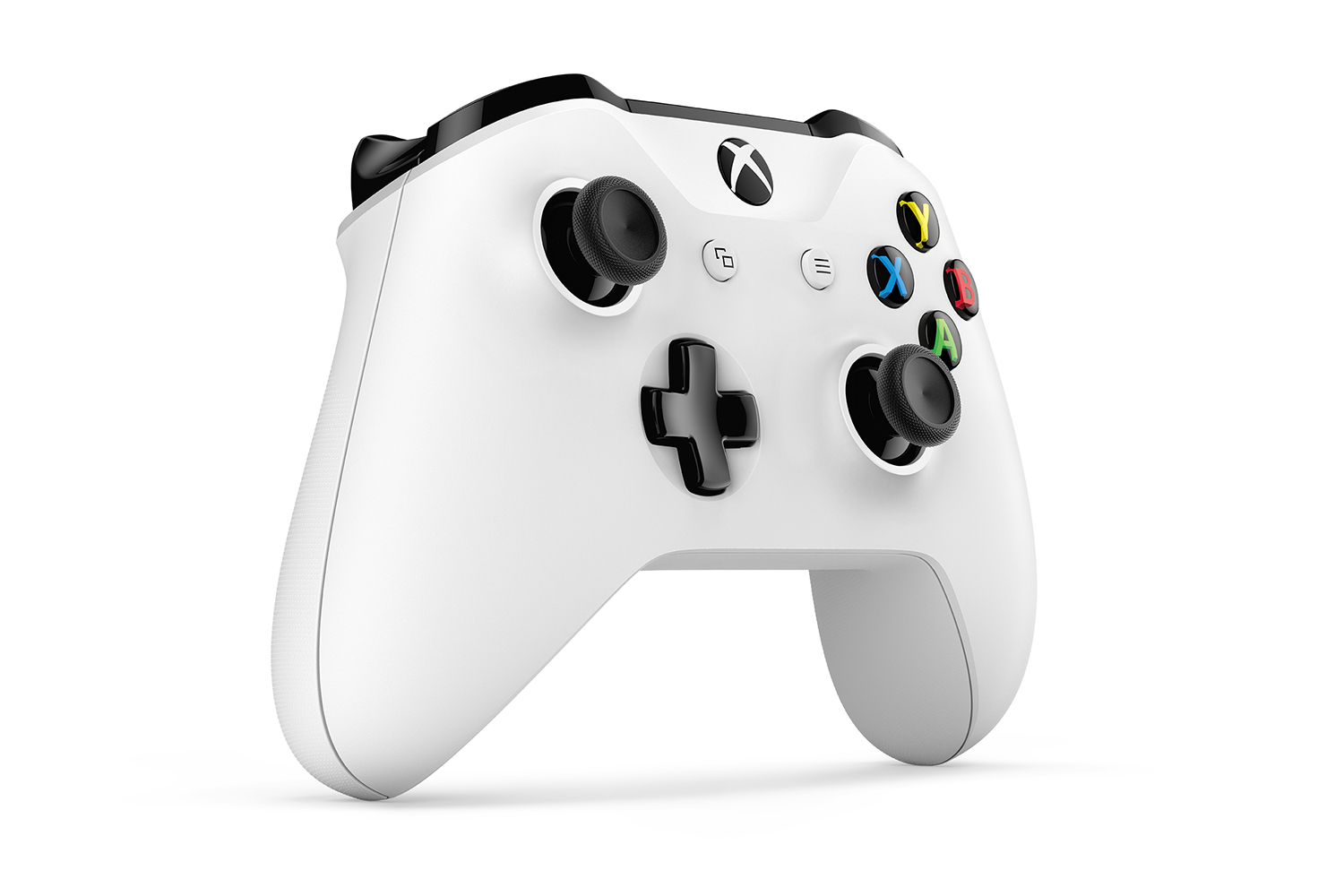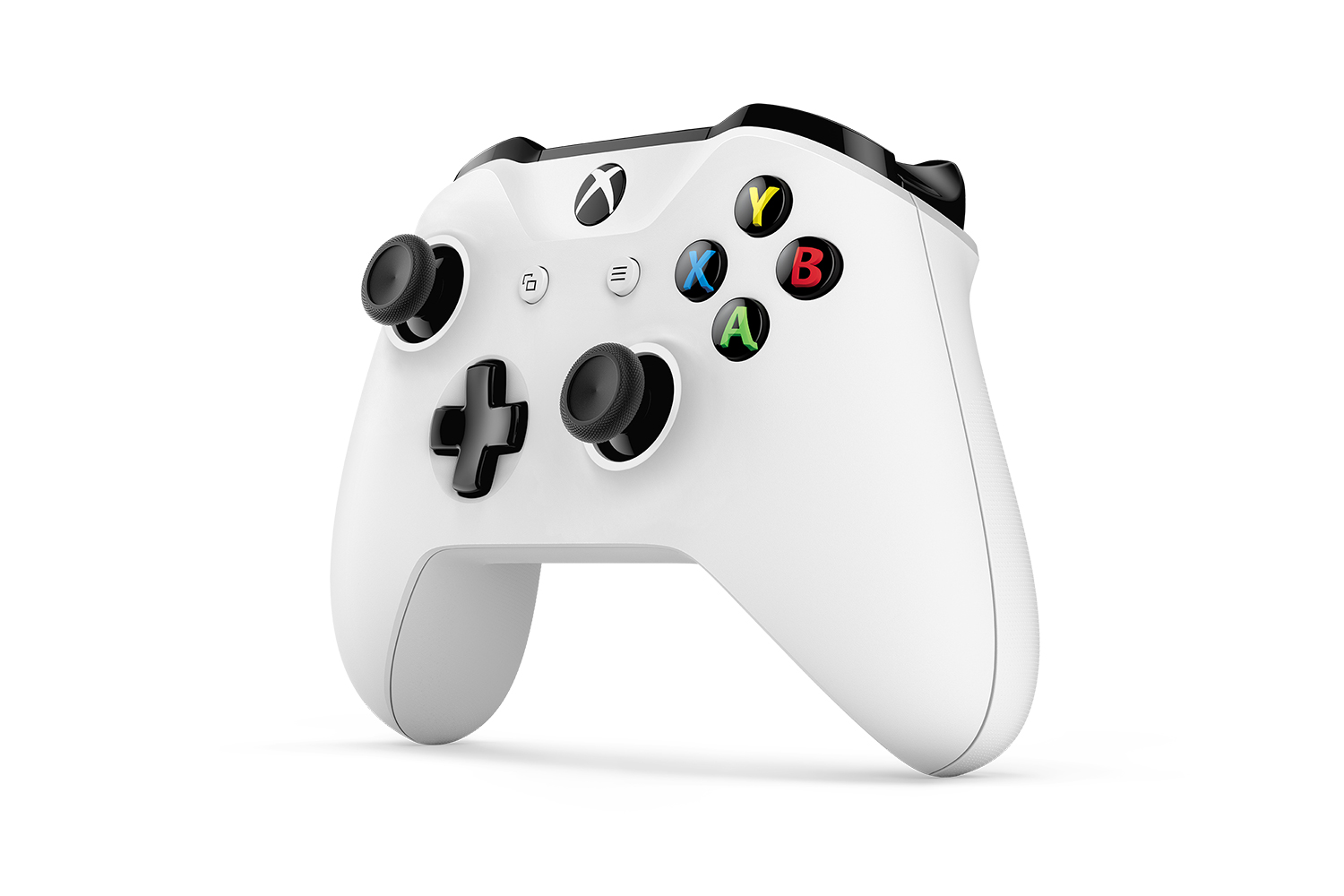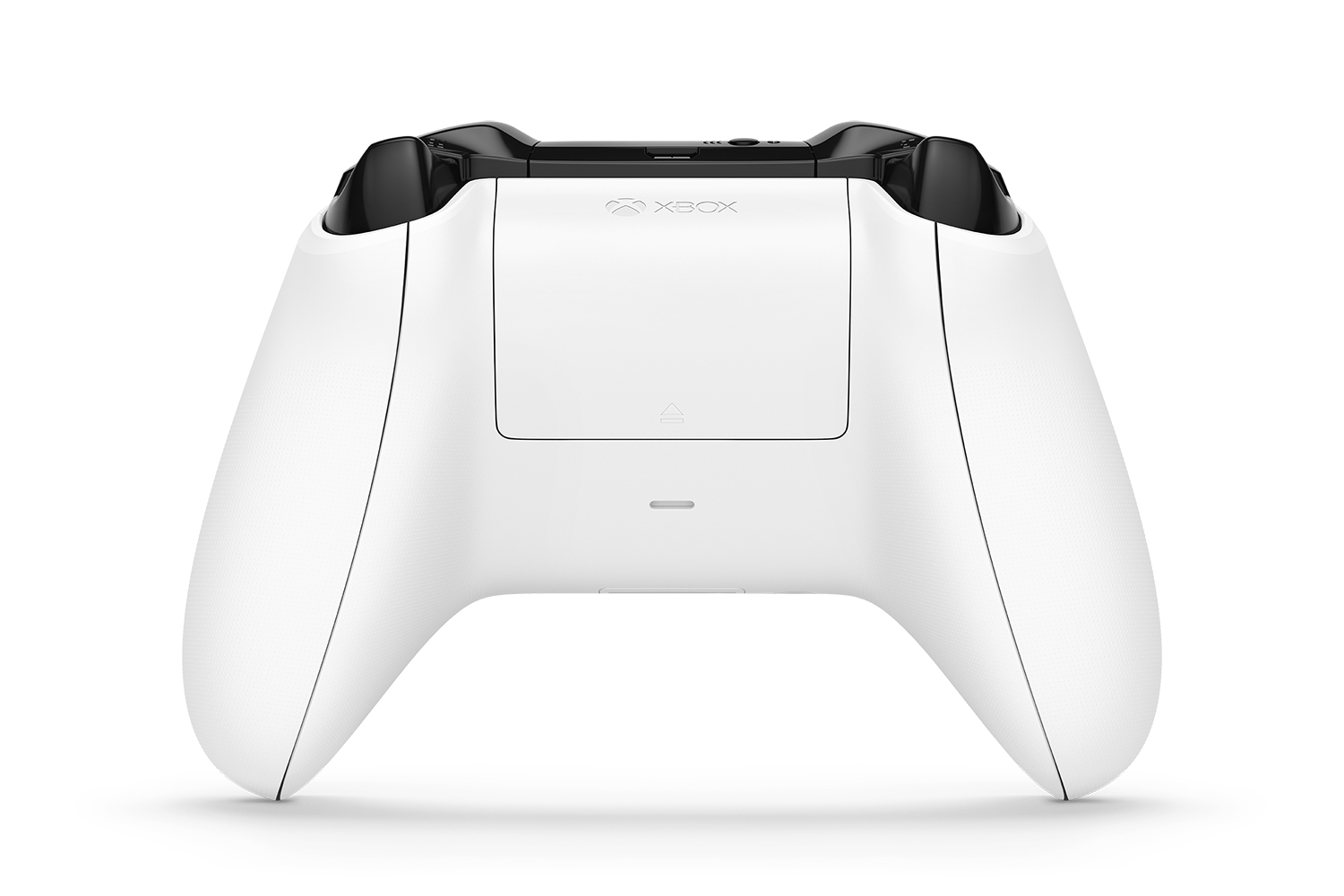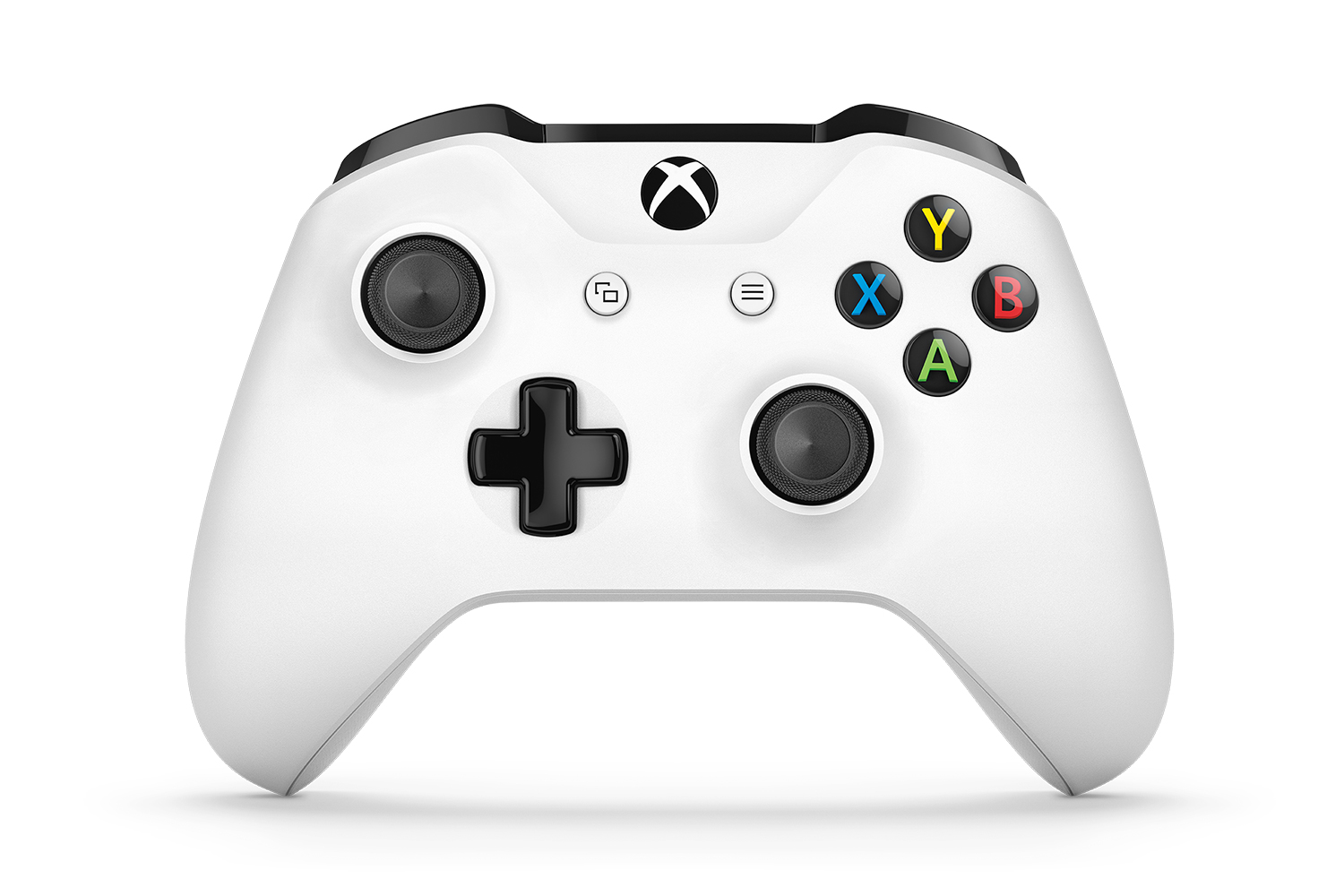
Then the Xbox One was released, and Microsoft did nothing with that potential. Instead, it circled the wagons in face of an assault of negative opinion. It’s only now, nearly three years later, that we’re seeing the One’s potential unlocked. But has the company gone far enough?
The new hardware
Microsoft bookended its E3 2016 conference with hardware bombshells. It started by announcing the newer, smaller Xbox One S at $300, and ended by teasing Project Scorpio, a brand-new console slated for holiday 2017.
The days of one-and-done consoles are at an end
Speculation was that Scorpio was the Xbox One S, so the double announcement was a surprise by itself. But then Microsoft went a step further, saying the Scorpio console will “coexist alongside Xbox One and Xbox One S, and all your Xbox One games and accessories are compatible.”
So that’s that. The days of one-and-done consoles are at an end. Instead, Xbox will let users choose the level of hardware they need or want – just like the PC always has.
This move will cause controversy, as it marks an end to the simplicity that used to rule the console world. Soon, gamers will need to know technical details to buy the “right” Xbox. I’m sure there will be a few angry teenagers raging about getting the wrong console come December 25, 2017.
But hardware updates will help Microsoft, and console gaming as a whole, keep up with the PC. In the past, the console’s progress came in jerks and starts. Consoles are great at release, but after a couple years, the PC recovers, offering superior graphics and newer features.
Microsoft wants to change that, now and forever. I think it’s a good idea. It may be a bit more confusing, but consumers will manage, and in return they’ll receive the flexibility and choice PC players have long enjoyed. Even die-hard PC gamers might benefit. I play most games on the PC, but if I could buy a $200 base-level Xbox in 2017, I might do that to enjoy a game on my couch.
Buy once, play anywhere …
But hardware is only part of Microsoft’s more holistic path forward. Software is just as — perhaps even more — important.
And the company brought its A game to E3 2016, announcing a push for cross-platform play. Officially titled Xbox Play Anywhere, this initiative will bring (almost) all of Microsoft’s major exclusives to the PC. That includes new games from the Gears of War, Forza, and Halo franchises — though the latter is sadly Halo Wars 2, and not Halo 5. Ten crossplay games were shown in total, and gamers who purchase them can play on either the PC or Xbox without paying twice.
Crossplay has made sense since the Xbox One’s launch. The architecture inside the console is fundamentally the same as a PC, and the Xbox One has always used a version of the Windows kernel (today, it runs Windows 10). There’s no hard, technical obstacle that bars an Xbox game from the PC, or vice versa.
This move destroys the strange community barrier that exists in many online games. There is not one community for The Division, but instead three – one for PC, one for PS4, and one for Xbox One. To play with friends, you need to not only buy the game, but also the same version as them, like it or not.

Gamers have become so used to today’s partisan gaming community that they forget how weird it is. Developers realized several years ago that the platform exclusive was a dying breed, and have changed plans accordingly. Now, most games come to multiple platforms. But the hardware and online services gamers use to play games remain locked into different, independent realms.
Xbox Live Anywhere will remove that silly restriction.
…with a select few games
Well — for certain games, at least.
Tom Clancy’s The Division, for instance, won’t be taking part in this revolution. It’s already out, and already coded for a world with three independent game platforms. Even if it weren’t, it’s not clear if Ubisoft would choose to change course. Coding for Xbox Live Anywhere would presumably require extra work, none of which would be enjoyed by PlayStation fans.
If it’s impossible to distribute Xbox Live Anywhere games on Steam, then the idea is dead on arrival.
That’s not Microsoft’s fault. But the question of fault is irrelevant. Developers want to make money, and to do that, they have to code for as many platforms as possible, as quickly as possible. How will Microsoft pitch Xbox Live Anywhere to them? Can it convince third parties to join forces en masse, or will the feature be seen as too much work, for too little payoff?
And most important of all — how will this work with Steam, GOG, and other platforms that already exist on the PC? They’re far too popular for developers to abandon. If it’s difficult, or impossible, to distribute an Xbox Live Anywhere game on third-party stores, then the idea is dead on arrival.
Execution matters
Xbox Live Anywhere is not Microsoft’s first foray into placing games on both Xbox One and PC. It’s already happened with Rise of the Tomb Raider, Gears of War Ultimate Edition, and Quantum Break. These aren’t Xbox Live Anywhere titles because they don’t support cross-platform multiplayer, and gamers must buy a copy for each platform. But they are, otherwise, examples of what the future will look like.
And the future looks bleak.
All three titles are Windows Universal Platform apps, which means they must be purchased through the Windows Store, and they run in a UWP platform container (not as a traditional x86 app). That breaks compatibility with a lot of add-on applications, including voice chat programs, streaming software, frame rate monitoring software, and Steam. Modding is much more difficult due to UWP’s design, which makes it difficult to intercept a game’s API calls. These games run only in borderless window mode, as UWP doesn’t support exclusive fullscreen. And any tool that invokes specific settings on games, including video card control panels, won’t work because there’s no .exe launched for them to detect.
As if that weren’t enough, all three games had technical issues at launch. Gears of War suffered serious frame pacing issues, and had performance problems on AMD cards — even a Radeon R9 Fury X would not run the game smoothly at its highest settings. Quantum Break, meanwhile, was crippled by a strange issue that barred the game from reaching a full 60 frames per second on a 60Hz monitor, and a similar issue that caused stuttering if the optional 30FPS frame rate cap was used.
PC gamers responded to the botched launches with predictable lament. To make matters worse, Rise of the Tomb Raider is the only of the initial trio that, as of this moment, runs at an acceptable level of performance. Gears of War and Quantum Break have been patched, but problems remain.
It’s not all bad news. Forza Apex — technically not a full port, but instead a spinoff — looks great and runs extremely well, even on a computer lacking the latest hardware. It’s clearly possible to bring Xbox One games to the PC with the stunning visuals and smooth performance PC gamers expect. Microsoft just needs to step up, and deliver.
Xbox One crossplay still looks doomed
Earlier this year, I said Microsoft’s attempt to unify the Xbox One and Windows is doomed. I pointed out that no one wants to use the Windows Store, or be restricted to the UWP platform. I noted that Gears of War was a disaster. And I concluded PC gamers are far too stuck on Steam for Xbox Live to have a chance.
Microsoft’s E3 2016 conference was exciting, intriguing, and suggests a bright future for the Xbox One console. I’m specifically hyped to play Forza 3 Horizons — I don’t have an Xbox One, so I never enjoyed Forza Motorsport 6, despite my love for the franchise. After several years of bargaining and begging, Microsoft has finally earned forgiveness for the ill will it gained at its disastrous 2013 show.
But everything I said in March remains true. Microsoft’s reveals, though impressive, are half-steps that don’t fully unlock the Xbox One’s potential. I won’t really be happy until Microsoft shows an Xbox One running a fully functional, optional installation of Windows 10.
That was my dream in 2013. And it remains my dream today.

